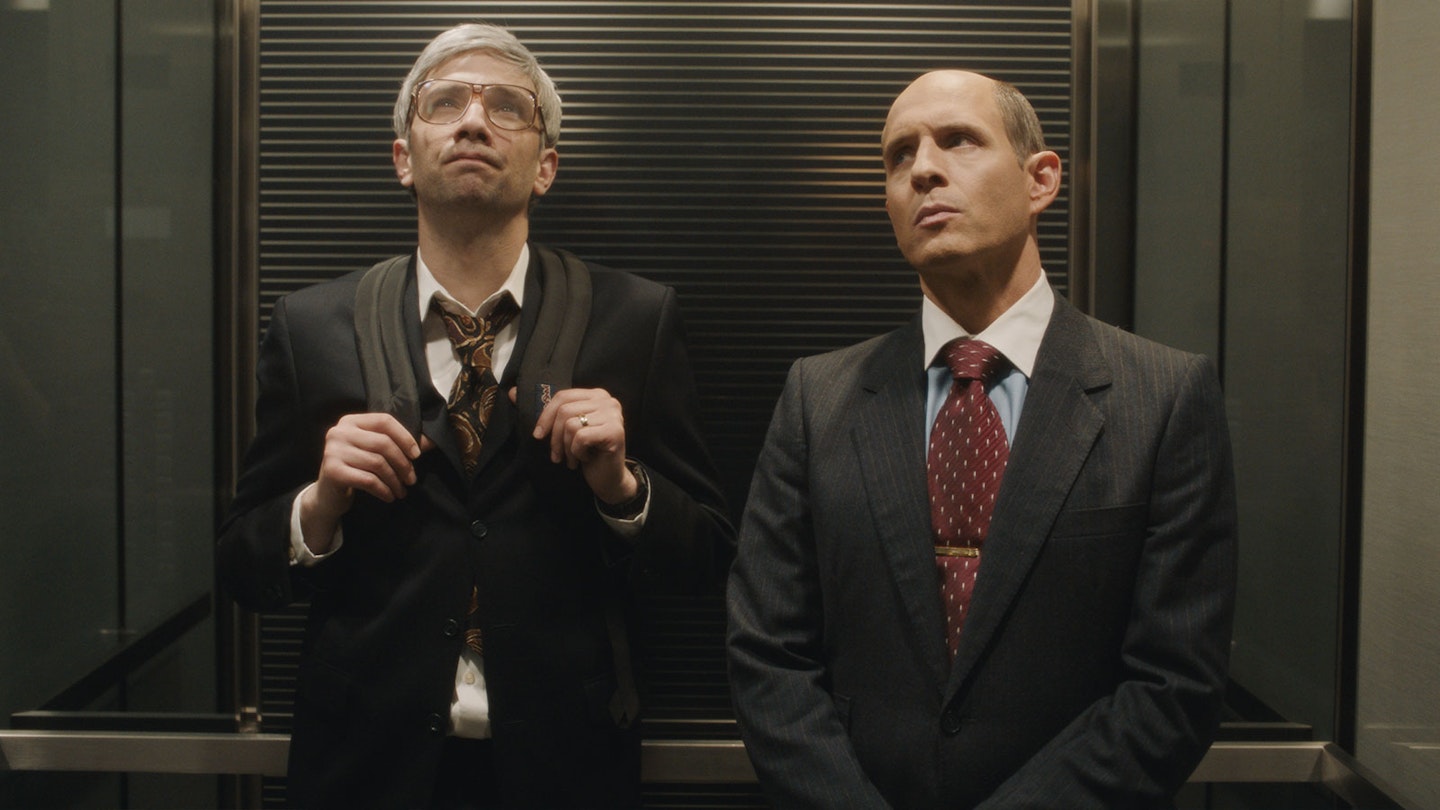In the years since The Social Network, many have tried to recreate that winning combination of a ‘how stuff gets made’ story and ripped-from-real-life human drama. This year alone, we’ve already seen The Beanie Bubble and Dumb Money follow the Social Network formula to a lesser or greater degree. Director Matt Johnson largely sticks to said formula with BlackBerry, but imbues it with an idiosyncratic charm and comedic bite.

Based on Jacquie McNish and Sean Silcoff’s book Losing The Signal, the film follows Mike Lazaridis (Jay Baruchel) and Doug Fregin (Johnson), the scruffy co-founders of Research In Motion, whose innovative tech designs are underserved by their lack of public-facing skills. Enter Jim Balsillie (Glenn Howerton), a ruthless bully of a businessman who can, and does, turn their dreams into gold. Together, their smartphone prototype becomes the BlackBerry — which at one stage in its short life made up 45 per cent of the cellphone market.
Baruchel gets to flex a few different muscles here, his anxious mannerisms calcifying into impatience and desperation.
Baruchel, whose career has largely seen him play nervy underdogs, wears Mike’s ill-fitting suit like a glove, while Johnson bounces around him like a spirited, headband-sporting Labrador, all loyalty but no business savvy. Yet Howerton is the film’s terrifying, magnetic wild card. Not so much chewing the scenery as ripping it apart with his incisors like a rabid wolf, the actor — who has finessed steely-eyed malice in sitcom It’s Always Sunny In Philadelphia — is a revelation here. A tight, energised ball of rage, he occasionally and deliciously explodes on screen, treating us to curse-laden outbursts so violent and raw that they would make Joe Pesci wilt.
Johnson captures the trio’s disastrous dynamic mockumentary-style, which gives the film a dated look that occasionally works against a story about technological advances, and distracts from its fleeting but impactful emotional punches. Yet this Spinal Tap-esque approach serves as a constant reminder that BlackBerry is, at heart, a comedy, not a slick drama.
Of course, the BlackBerry’s domination doesn’t last. And in the final act, set in 2007, Mike confidently dismisses the televised presentation in which Steve Jobs announces the iPhone, his denial a telling sign that success has loosened his grip on reality. Baruchel gets to flex a few different muscles here, his anxious mannerisms calcifying into impatience and desperation. It may not be The Social Network, but this kind of human downfall, performed by brilliant comedic actors, is exactly where BlackBerry succeeds: with heart, humour and the occasional hammy flourish.
